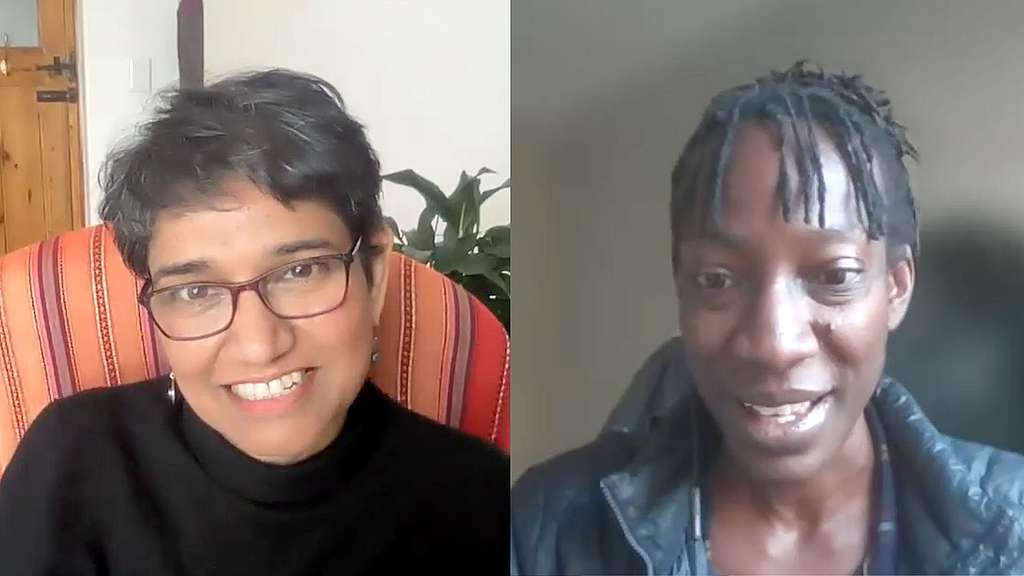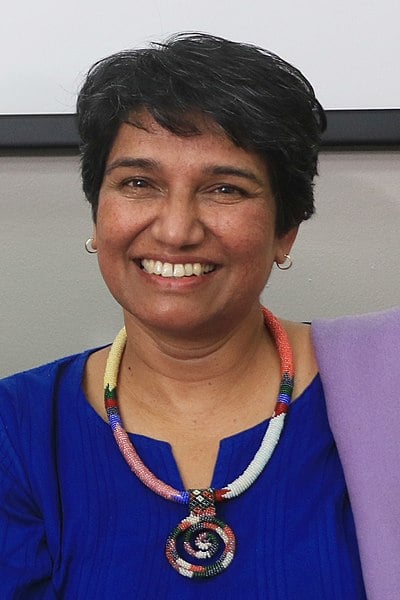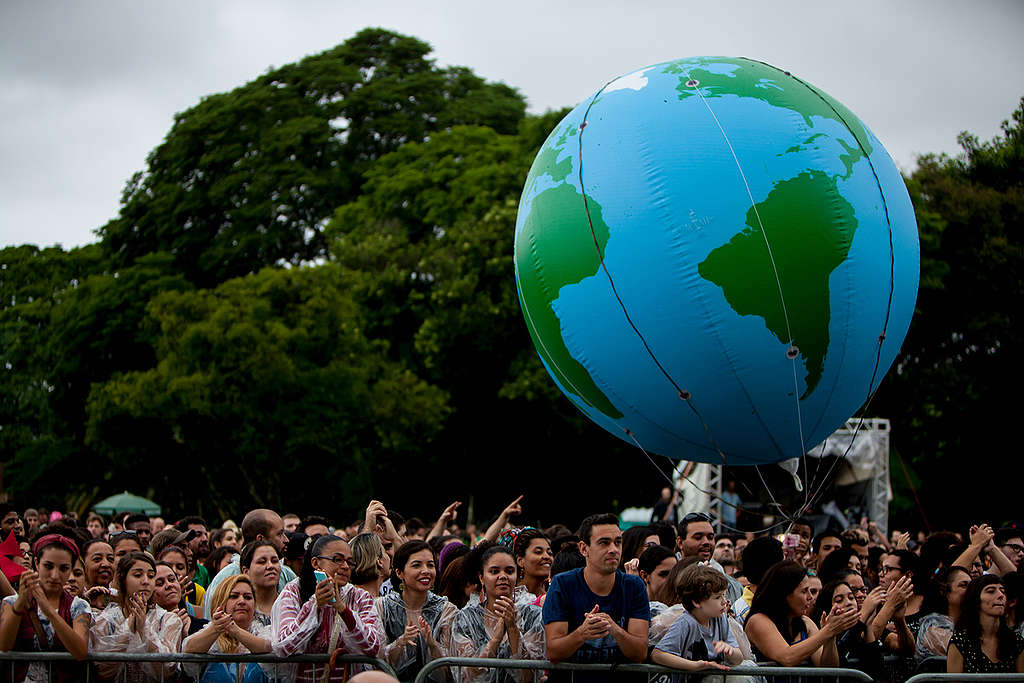South African Women's Day marks the anniversary of when 20,000 women marched against the apartheid government's pass book laws, on 9 August 1956. Renowned anti-apartheid activist, politician and author Pregs Govender chats to fellow author and Greenpeace Storytelling Advisor Yewande Omotoso about her activism – then, and now.

Yewande Omotoso: When you think of the kind of work and activism that you've been doing and leading in for decades, how do you feel about where we are today?
Pregs Govender: When we were fighting against apartheid, It wasn't just a racist state. It was a racist, capitalist and patriarchal state. And we have to understand that. So how do we actually fight against that? How do we change that? And I think that's really the system. That's a global system. It's a racist, patriarchal and capitalist system that cuts across from Russia to the United States. So whether you call them oligarchs or billionaires, It's really people who exploit the earth and humanity with fairly little consequence and then set themselves up as the people with the solution or who will fund the solutions.
Love, courage and system change
Yewande Omotoso: What you say about systemic power and control – how easy it is to be manipulated and distracted. How much despair there is. How do we guard and fight against all this?
Pregs Govender: When I wrote Love and Courage, the Story of Insubordination, I was not just stirring some isolated individual operating in a bubble. It was really about my learning about the power of love and how to connect, to draw courage and be insubordinate, to injustice and to systems of injustice.
And I learned that from many of the people I talk about in the book, whether those were my parents or whether those were political activists who had really paid huge prices in terms of being imprisoned and tortured.
The process of writing my story was a deep internal journey, as well as a journey through words to share the reality that we're one human being. We're not sort of all these disparate pieces – mother here and then I'm a teacher there, feminist here and I'm an activist there, I'm a person of color, I'm black…it's not in pieces, it's one thing. We encompass all of this. It's not neatly fragmented. That's how Power Systems work. They fragment us. They fragment us as individual beings. And they set up these hierarchies – the hierarchy of the body, mind, heart, spirit; hierarchies of race, colour, and gender, and they set up these divisions within and between us.
And I suppose one of the most powerful things is reclaiming that connection.
Because when we reclaim that connection, we begin to link that to the questions that help us unpack power.

"That's how Power Systems work. They set up divisions between us. One of the most powerful things is reclaiming that connection."
Whose story is it anyway?
Yewande Omotoso: Who's one of your greatest influences?
Pregs Govender: My father, who passed away last year. His name was Ronnie Govender and he was a storyteller. He used to say the person who writes the story shapes our consciousness. So it's not just about whose stories get told, but it's about if you are writing the story yourself, if it's your story, if it's your experience, the power of that is enormous. Because all stories have been written for us and they've been re-written. And many times we've been written out.
Through whose eyes are we seeing climate change and the solutions? It's a fact that those who have been protecting water, land, the Earth herself have been the Indigenous Peoples across the world. And, you know, so it's the water protectors at Standing Rock. There were young people that were there – never profiled.
Yewande Omotoso: Those stories are never told, they're not on the cover of big media.
Pregs Govender: When I was growing up, I used to be a bit embarrassed about my mother, who would save every plastic container. And so my children have favorite stories where they opened the fridge when they went to Aya's house and there would be this ice cream container or this lovely yogurt container and they'd take it out and there'd be curry inside! And so she was the original recycler and she grew up in a small holding where her mum was a market gardener as well as a midwife and a healer, and she knew about plants. And in fact, when she came from India, she brought all these seeds with her and she planted lots of trees.
When Wangari Mathai [Kenyan social, environmental and political activist and the first African woman to win the Nobel Peace Prize] came to the University of Cape Town to give a lecture, I was invited to meet with her afterwards. And I asked my mother if she'd like to come – and my mother who always says no, I'm not interested in meeting these big people was suddenly excited. When she met Wangari Mathai she said you remind me of my mother who used to plant trees.
There's a whole wealth that exists amongst our ancestors which is out of the dominant story, invisible, not valued. It's only valued when it's seen. [The question is] Who is it seen by? Who gives it value?
This interview is part of an ongoing series on the Greenpeace Storytelling website.
Pregaluxmi "Pregs" Govender is a South African human rights activist, author, and politician based in Johannesburg, South Africa.
Yewande Omotoso is a novelist, architect, designer and Greenpeace Storytelling Advisor based in Johannesburg, South Africa.

We can build a green, fair and peaceful future that puts people and the planet before profit and growth.






